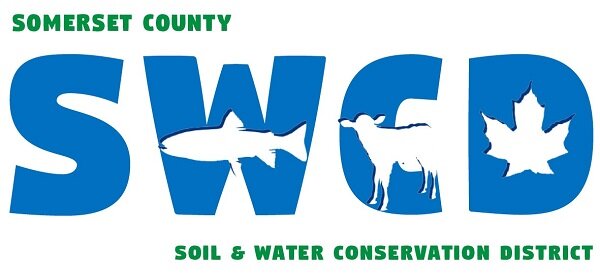Winter Low Impact Harvest Tour
Text and photos provided by Alexis Clune
I had the opportunity to join a tour of an active forest thinning in Dexter led by forester and logger Rob Nelson. The focus of the tour was on low impact forestry principles and the benefits vs. risks of using various forest harvesting equipment. Rob demonstrated the use of his Vimek 606, a Swedish-made forwarder that stacks and removes trees after they have been cut into ~6 foot pieces. Thinning using this forwarder involves a two-man crew, with one person running the machinery and another person using a chainsaw to fell the trees and then cut them to 6’ pieces. The forwarder weighs 6,500 pounds, and its compact size allowed Rob to maneuver through the forest on a small footprint.
After a demonstration of the forwarder, Rob took the group to another section of his woodlot that had been recently thinned by another logging company. This was a heavy thinning of spruce and fir to promote existing hardwood species on dry, upland soil. Rob explained the reason he chose to hire another logging company for this location was because the dry soils could better handle the large machinery as well as his desire to remove a significant number of trees. This company uses larger machinery that can remove trees at a much faster rate than Rob’s operation, although it does require wider trails to be cut in the process. The size of the thinning was another important factor because it made the project cost-effective to bring in an operation who can complete the thinning in only a few days and also had the ability to bring the wood products to a mill that would accept it.
An important takeaway from this tour is that there are many factors for landowners to consider when deciding how they want to thin their forest. Who they choose to do the work will depend on their goals, the site conditions, and what they can afford to invest in the project. Thinning using low-impact methods might be a viable option for landowners when considering the help of cost-share assistance from NRCS.
Alexis Clune is Soil Conservationist with the USDA-NRCS in Somerset County.


